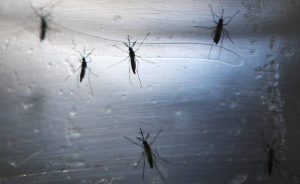
Image courtesy of Time
1. WHO revises guidance on the prevention of sexual transmission of Zika
On May 30, WHO released updated recommendations that indicate that individuals returning from Zika-affected areas should adopt safer sex practices or consider abstinence for at least 8 weeks upon return. They also indicated that men who have had Zika virus symptoms (rash, fever, arthralgia, myalgia or conjunctivitis) adopt safer sex practices or consider abstinence for at least 6 months. The updated WHO recommendations are now in line with the U.S. CDC’s Zika recommendations related to prevention of sexual transmission, issued on March 25.
According to WHO, “mounting evidence has shown that sexual transmission of Zika virus is possible and more common than previously assumed”. As of May 19, the U.S., France, Italy, Argentina, Chile, Peru, Portugal, New Zealand, Canada and Germany had reported sexual transmission of Zika virus. Thus far, the evidence points to male semen as the source of transmission.
2. First baby is born with Zika virus-related microcephaly on the U.S. mainland
On May 31, hospital officials in New Jersey reported that a baby girl who was born to a Zika-infected mother has severe birth defects, including microcephaly, intestinal abnormalities, and structural abnormalities of the eye. Doctors believe that the mother was infected during the second trimester of her pregnancy in Honduras, before traveling to the U.S. to seek better care for herself and her child. She experienced a fever and rash, both symptoms of the mosquito-borne disease.
Another baby was born in Hawaii with Zika virus-related microcephaly in January of 2016. According to Hawaii’s health department, “the mother likely had Zika infection when she was residing in Brazil in May 2015 and her newborn acquired the infection in the womb”.
3. U.S. Congress continues to fight over Zika funding
In February of 2016, the White House asked Congress to consider an emergency supplemental appropriations request of $1.9 billion to respond to the Zika virus both domestically and internationally. However, nearly 4 months later, Congress was still struggling to reconcile the House and Senate proposals before leaving for a 10 day recess. The Senate approved a measure that would provide $1.1 billion in emergency funds, while the House approved legislation that would reallocate $622 million from existing programs, including efforts to combat Ebola.
Dr. Tom Frieden, Director of CDC, has implored a divided Congress to move faster to combat the “extraordinary and unusually urgent” crisis. “Three months in an epidemic is an eternity”, he said.



